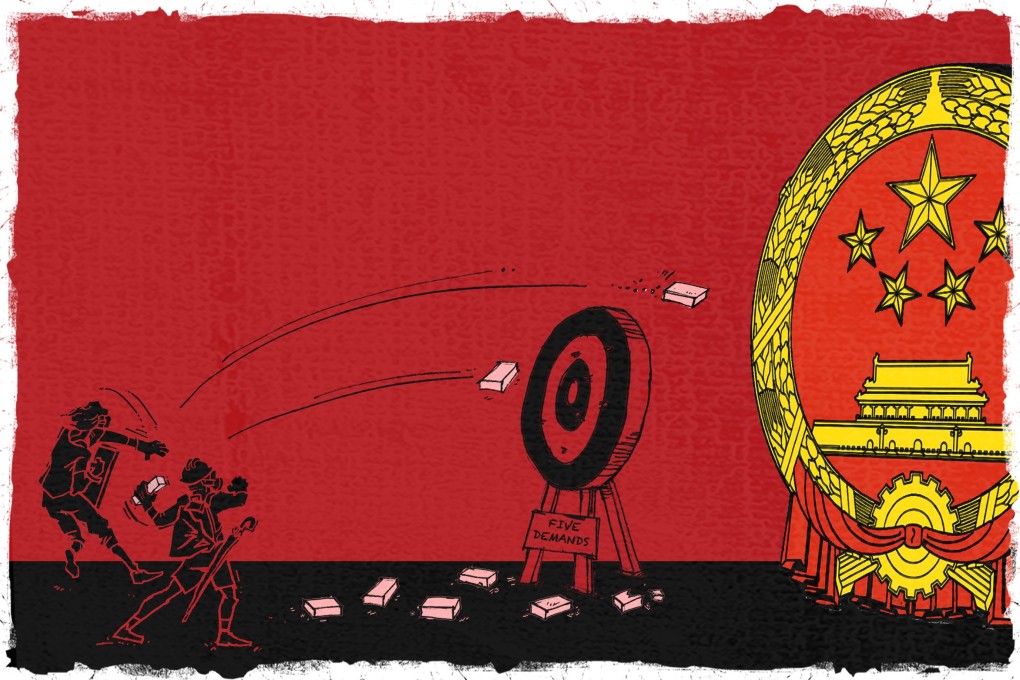Taking aim at China: why Hong Kong ‘radicals’ have turned on mainland Chinese targets
- Businesses and people with ties to mainland China have been in the firing line of a nativist group of protesters, observers say
- But it’s no coincidence to see an ‘anti-China’ sentiment in the city, given various factors from a loss of autonomy to high housing prices, others say

When Chen, a banker from mainland China, left his home on Hong Kong Island with his family for dinner earlier this month, he was alarmed to come across a makeshift roadblock in Wong Chuk Hang near Aberdeen.
There, a few men in black and armed with sticks were stopping motorists and demanding that they show them their mobile phones.
Spooked by an attack on another Mandarin-speaking banker in the city that day, Chen feared that what was on his phone could endanger his family.
“I use WeChat [a messaging app popular in China] to communicate with my mainland clients,” Chen said, refusing to identify himself by his full name. “If they read my messages they would know that I’m a mainlander.”

He showed them the phone but that night the men at the roadblock were not targeting mainland Chinese – they were looking for police officers they accuse of using excessive force on duty.
Nevertheless, the encounter rattled Chen.